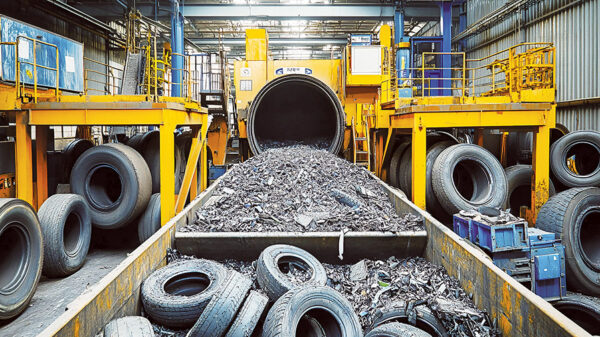Freestate Farms LLC, an organic waste recycling company based in Northern Virginia, broke ground to begin construction of its new advanced aerobic composting system at the Prince William County Balls Ford Road Composting Facility in Manassas.
Colesvile district supervisor Martin E. Nohe (Prince William County Board), county executive Christopher E. Martino, and members of the county’s solid waste division lent a hand to turn the first shovelfuls of dirt for the project.
In January 2015, Freestate Farms was authorized by Prince William Board of County Supervisors to construct and operate this new facility to process yard waste, food scraps and wood waste at the County’s Balls Ford Road composting facility, and to provide organic waste management services at that site and at the county’s landfill.
When the project is complete in 2020, it will double the processing capacity at the Balls Ford Road facility. Over 80,000 tons per year of organic waste will be recycled into high-value compost, soil products, and non-synthetic fertilizers. This will reduce the amount of yard and food waste going into the County landfill, thus extending the life of the landfill, and Freestate will ultimately employ more than 20 people at the site.
The first phase of the new facility will involve advanced aerobic composting technology, designed and supplied by Engineered Compost Systems, which will speed up and optimize the composting process. The current system stacks yard waste into long passively aerated piles (called windrows) that are turned manually with heavy equipment to promote the composting process, which presently takes roughly nine months.
The new system will automatically control the flow of air through concrete aeration floors to maintain optimal aerobic conditions in the piles, which will minimize odor generation and speed up composting. Biofilters will further scrub potential odors from the exhaust air stream. This process will reduce the composting time to three to four months and allow Freestate to produce higher quality soil amendment products.
The second phase of the project will involve construction of an anaerobic digestion system, which will process food waste in a fully enclosed airtight tank that is seeded with special microbes to “digest” (i.e., convert) food waste and other organic material, such as fats, oils and grease, into methane-rich biogas and high-quality fertilizer products. Freestate will use the biogas produced to fuel a combined heat and power generator to serve the entire Balls Ford Road facility, and which will have excess electricity available to send back to the grid.
The final phase of the new facility will be an indoor organic food production system. Freestate will construct and operate controlled environment containerized grow boxes to sustainably grow fresh produce using the renewable energy, with compost and fertilizer products all generated at the Balls Ford Road site.
Published in the February 2019 Edition







